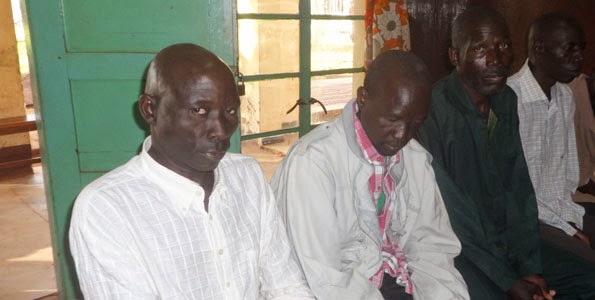Women carrying their albino children in Dar es Salaam. (Photo courtesy of the Milliyet Daily).
Check out the Story when the
Albino Toddler was Kidnapped.
The UN human rights chief harshly condemned the murder and mutilation of
an albino toddler in Tanzania, demanding authorities protect albinos,
whose body parts are used for witchcraft in the country.
"Violence and discrimination against people with albinism must be
halted," UN High Commissioner for Human Rights Zeid Ra'ad Al Hussein
said in a statement, condemning "the horrific murder and mutilation of
Yohana Bahati."
The one-year old boy was seized by men with
machetes from his home in northern Tanzania's Chato district overnight
Saturday, and his mother was badly injured in the attack.
Police found his body, with his arms and legs hacked off, on Tuesday.
Zeid
said attacks on people with albinism, which are often motivated by the
use of body parts for witchcraft rituals, had claimed the lives of at
least 75 people since 2000.
He warned that the attacks seemed to be on the rise, with at least three incidents over the past two months.
"I
call on the Tanzanian authorities to swiftly investigate and prosecute
perpetrators of this terrible crime and to strengthen its protection
measures for people with albinism," Zeid said.
The UN repeated its
fears that the uptick in attacks against albinos could be linked to
looming general and presidential elections in October 2015, as political
campaigners may be turning to influential sorcerers to improve their
odds.
"This is the year of elections in Tanzania and, as some
analysts have suggested, it could be a dangerous year for people living
with albinism," UN country chief Alvaro Rodriguez warned Wednesday.
Albino body parts sell for around $600 in Tanzania, with an entire corpse fetching $75,000, according to the UN.
Albinism
is a hereditary genetic condition which causes a total absence of
pigmentation in the skin, hair and eyes. It affects one Tanzanian in
1,400, often as a result of inbreeding, experts say. In the West, it
affects just one person in 20,000.






